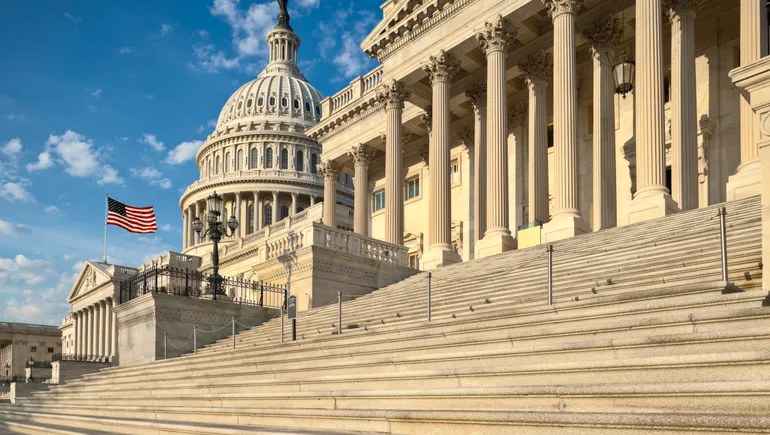The maximum Pell Grant award will remain at $7,395 for the 2024-25 school year, under a $79.1 billion bicameral, bipartisan budget signed by President Joe Biden Saturday. This maintains the $900 increase of the last two fiscal years, according to a Senate summary of the funding bill.
But the U.S. Department of Education will get $500 million less for fiscal year 2024 compared to the previous year, the agency’s first cut since FY 2015. The budget plan, which came just as the previous continuing resolution expired, covers the agencies that had still been operating without permanent appropriations bills through September 2024.
Legislators sent the agreement to Biden’s desk more than six months after the Oct. 1 deadline to finalize the annual appropriations for the Education Department and several other agencies. A series of continuing resolutions has shielded the federal agencies from a government shutdown in the meantime, and six other federal appropriations bills were finalized on March 8.
The newly signed measure also maintains funding for Federal Work Study at $1.23 billion and the Federal Supplemental Educational Opportunity Grants at $910 million, both of which had been targeted by Republican lawmakers for elimination.
In January, Rep. Virginia Foxx, chair of the House Committee on Education and the Workforce, proposed replacing the Supplemental Grant program with performance-based grants for colleges as part of a plan to reduce the cost of college. Foxx, a Republican from North Carolina, has strongly opposed the Biden administration’s attempts to dramatically increase the Pell Grant maximum and implement free community college.
Biden had requested an $820 increase in the maximum Pell Grant for fiscal 2024, on the way to seeking a doubling of the maximum award by 2029. For fiscal 2025, he has requested a $750 increase to the maximum Pell Grant, bringing it to $8,145.
The Republican-led House Appropriations Committee called a potential Free Community College program wasteful and highlighted its exclusion from the FY 24 appropriations bill in a budget summary.
